#☩ you need the ocean for this: to stop believing in reality ( STUDY. )
Text
i am thinking about. how henry spends the entire movie proving he is capable and also correct not as a matter of conceit but in order to accomplish his goals and how most of the people in the movie call him 'boy' anyway as a way of undermining him but actually it's not until the actual dad figures in the movie take control of the situation for the sake of their kids that you see that kid side of him (the 10 year old going 'I want you to come home' while soaked and shivering) again, like.
the movie goes: Here He Is
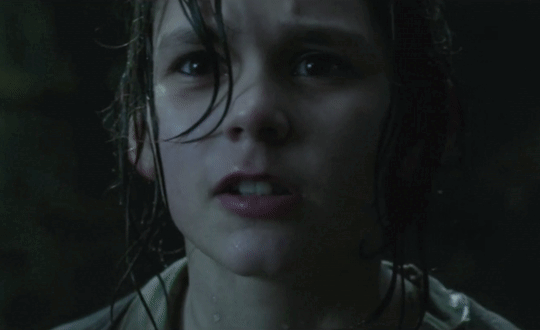
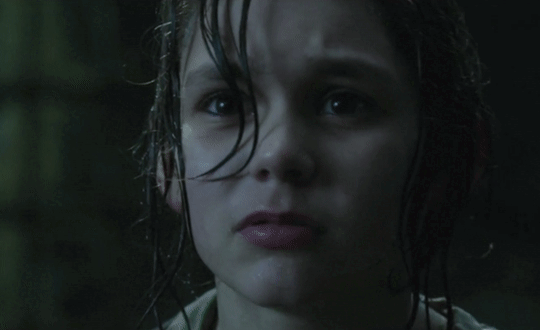
and then nine years later it's all certainty and brashness


and people are calling him "boy" but who are they talking to because it's not him, surely?
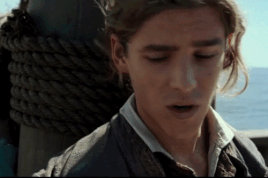
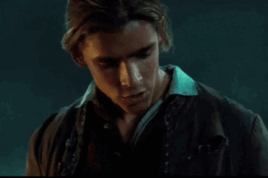
not this young man pushing and pulling and powering forward, everyone else in tow, surely?

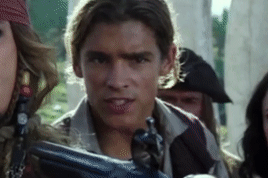
and then it's like. oh There He Is
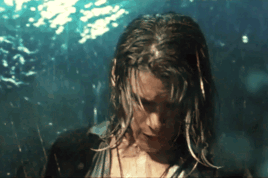
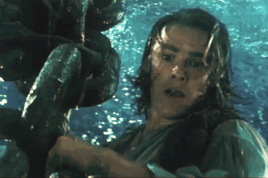
#i rly need to get the chip of liking this movie off my shoulder tbh im sure y'all are sick of me in this regard#(and i do not blame you--- that was a neutral statement about the reality of how much i do this slfkjglskfj)#but it really very much is so much more intentional and coherent of a movie than its given credit for#like i don't like the tone of the humor either! and there are definitely weak spots and characterization choices i dont agree with!#but this shit is a whole complete movie by professionals and not the cobbled together mess people pretend it is#so much of it is just right there and there is a style its invoking on purpose that is#much lighter of a pg13 than the trilogy yes but it's still! right there!!#hm almost not really but maybe i#hannah complains about people complaining about dmtnt.txt#and also this is a something but my brain hasn't said what yet so it's a#☩ alive with the beating of a young heart ( ABOUT. )#☩ you need the ocean for this: to stop believing in reality ( STUDY. )
8 notes
·
View notes
Text
so if. Barbossa was “only dead” and that’s what makes him so easy to get back (just stuff his soul back in there and call it a day) but the difficult thing about Jack was that he was “taken, body and soul” does that mean.... he was not dead? in the same sense of the word? I mean because clearly he was in a land of the dead and probably didn’t eat/sleep/etc. but was. Was he dead-dead or was he ..like..........I don’t know a different sort of not-dead?
edit: no cause really if you think about it it’s really more like being imprisoned on a plane of the dead? since he was there in body and spirit? like he was physically there and not just passing through the lanes of the afterlife and he could not move forward or backward right so like.... dead but not dead but not alive because no going anywhere ever again wow this is so messed up
#does this make any sense or am i thinking too hard about it s;lfkjgs;ldkfjg;sdlnv;wekljssdl;kgj#☩ you need the ocean for this: to stop believing in reality ( STUDY. )
2 notes
·
View notes
Text
thinking about william turner setting his feet on land for good (for as long as he wants, forever if he chooses (and who could blame him)) and finding his son’s room full of plans and notes and drawings and a handmade calendar of sorts marking every day they weren’t together and planning for the one where they would be. what do you even do with that how do you respond to that it’s so. like henry live your life for you but also you did this? all of this??
#the calendar one is the one that really#like obviously he would have had to go back and make it when he was old enough to like#write and also understand it but that also means#he. went back. and made a mark for every day.#every day.#this is rora's fault#☩ you need the ocean for this: to stop believing in reality ( STUDY. )
3 notes
·
View notes
Text
this unironically came up on my tiktok so it’s slowly scoping me out for the hyperfixated nerd i am and that’s also why im thinking about it but the choice to put Elizabeth in a pink dress was. A choice. And like I personally don’t think that it was a wrong choice because I mean like. It’s a pretty dress and maybe she just pulled it out and dressed up specifically for the special occasion there’s no reason for her not to enjoy pretty things (she openly admires the dress from the first movie until it tries to kill her lmao) but when her cameo is entirely visual it’s weird and incongruous to the previous journey we’ve seen her costuming reflect. Like there’s nothing “”wrong”” per se with the costume it just doesn’t...... make sense in terms of where we left off with and therefore presume elizabeth to be in her characterization lskfjglskfjglskjfg
#i cant tell if it's supposed to be communicating a storyline we haven't see#seen*#or if it's just meant to be the soft and romantic look that it is for the reunion#given penny rose's dedication to the franchise and detail-oriented consistency in regard to will's costuming#im inclined to think the latter#but that doesn't make it any less Weird when her appearance has been so closely tied to her journey and is her only#means of establishing character in the fifth film!#☩ i’ll rewrite the whole movie dont test me ( OOC. )#☩ you need the ocean for this: to stop believing in reality ( STUDY. )
5 notes
·
View notes
Text
This. ........ very possible I’m giving too much credit but I think it’s unlikely because literal industry professionals made this movie and Penny Rose is freaking Penny Rose (BAFTA nominated) but the choice. To start Henry in many layers of clothing (but his heart is always bared-) but to start Henry in many layers of clothing then, as the journey progresses, they begin to disappear, freeing his movement and removing structure and relaxing his appearance, and actually he’s very at home in this mythological atmosphere, and as he goes he gets Lighter in both that more of his white shirt is visible but also he is shown to be playful, and humorous, and not simply driven and frustrated as earlier displayed, and how, by the end, he is his lightest (and also this is not costuming, but, in the light so you can see the gold of him) and most dressed down and even, actually, visibly injured, because he is at his most vulnerable having gone through his journey and lost the thing he set out for and technically doesn’t know if he accomplished his goal, so then he resets to Layers, but the layers, now, are all in his gold [and, actually, as i have noticed since i once said ‘he should be in green’- he actually wears a green vest under his Very Tan/Gold exterior so. Well played actually] so that, as the sun rises.......the son rises, victorious. What a choice.
#this..........................................................#is the thesis to a (word i am missing but something something analysis of movies) essay#that i could compile and cite with visuals (and also compare to william's costume journey in cotbp)#but i. don't know. if i want to do that im just suddenly#Thoughts.#......................................................................................................''The Undressing of Henry Turner''.pdf#(mortifying ordeal of being known ''undressing'' but actually you will notice he is Steadier the further they go)#☩ you need the ocean for this: to stop believing in reality ( STUDY. )
1 note
·
View note
Text
Does anybody else ever think about that one scene in DMC where the “keys unlock things” guy (who probably has a name I just do not know it top of head) also says “actually, you wouldn’t need everyone, about six would do” because like. Just because you can sail the Pearl with a crew of a half dozen doesn’t mean you want to, or that you should.
#technically possible does not mean ''therefore we should compete''!!! all pirates really are That Stupid#i know i know we needed stakes and disposable crew for the Action i just think it's silly#☩ i’ll rewrite the whole movie dont test me ( OOC. )#☩ you need the ocean for this: to stop believing in reality ( STUDY. )
4 notes
·
View notes
Text
The day I find the words for the “Will throwing the sword / Henry throwing himself bodily under the gallows” comparative character analysis essay it’s over for every single one of you
#☩ you need the ocean for this: to stop believing in reality ( STUDY. )#☩ genuinely about to haul off and start biting ( OOC. )
1 note
·
View note
Note
love that 'being unimpressed with jack' is a shared personality trait in your gifs, 11/10
ok this was not a question but listen.
It's not... exactly 'being unimpressed'. Like you're not wrong and also thank you, I love them, but also it's specifically a (really difficult to capture) moment of being forcefully disillusioned because there's no possible way for Jack to have lived up to either of their pre-meeting-him expectations and imaginations. They both put him on this pedestal he has no choice but to .. well, jump in Elizabeth's case, fall in Henry's, off of.
So Elizabeth has been reading about Jack; something she, before this moment, hasn't made known to him. It's only when he has, too many times in a row for her liking, failed to meet this imagined standard that she brings it up. She brings it up, then, specifically to throw it in his face, 'where is this?' And he says 'it's a lie.' So now Elizabeth, who has been, all her life, trapped in a role where relying on the men around her has been her only option, is once again at a point in her life where relying on Jack was more or less her only option. And she wasn't properly angry about it until it turns out he's not what she imagined. So Elizabeth is confronted by the idea that she cannot rely on even the 'good' men (real or imagined) in her life, so it is up to her to save their asses. Watch her go.
I don't write him this way but canon!Henry has had this idealized version of Jack living in his head, nearly like an imaginary friend I'd wager, that's only the grand things and the impossible things and maybe even the magical things. Jack is mythical. Jack is the answer to this great source of distance and pain in Henry's life, all he has to do is find Jack, and then Jack is just going to magically (with the trident) fix everything that Henry perceives as wrong in his life. Jack "is not some drunk in a cell" even though, arguably.... that's all he's ever been. I mean, not. Not 'some' drunk in a cell because he is (was until certain writing decisions) a highly adaptable and complex person, yes, but a mortal one, and a human one, and a fallible one. So Henry is confronted with the human-ness of this legend he's built up in his head and has to realize and decide, again but in a new way, that this is up to him. He cannot expect someone else to fix what he sees as flaws in the world. [He cannot expect things to be fixed and simply Be Fixed with no other fallout, either, but he'll get to that one later.]
I like the part where they have the same moment [idol fallen, illusion shattered; it is up to me] but they use these things very differently. Elizabeth goes to anger and criticism to cover her own hurt, then pushes into flattery as a method of deceit. Henry goes into denial and disappointment to .. borderline guilt-tripping but I think it's more an expression of his own disbelief than anything else, and then pushes into flattery as a method of coercion; it may be up-to-me, but he'll take what help he can get. Elizabeth always sees up-to-me as a pathway for one.
#same tools different handlers#hi ingrid im throwing stuff at u#☩ you need the ocean for this: to stop believing in reality ( STUDY. )#☩ ❝The sea in my blood❞ ( ELIZABETH. )
2 notes
·
View notes
Note
rain
(One Word is Worth 100 More) || Accepting!

Worth noting the way the first thing that entered my brain before I remembered the context for this meme/ask was (this.)
Cannot (and would not bother trying to) deny that he is, powerfully, a sun character to me. Sun and summer. In those moments when he does content himself with idleness, you normally catch him unfolded out in the sun just sort of ... existing. I don’t think he meditates in a formal sense of the word, never plotted it out or even heard enough about it to realize it’s what he’s doing, but sometimes you know, on instinct, he does a bit of a... find all the pieces of himself. Close his eyes, Notice his breathing and his fingertips and heart beat and the weight of the clothes on his skin. The feel of the sunlight and the way it reaches down into you. (Hannah this prompt says rain--) However;
I cannot deny, either, that part of my head that says, always, (his parents) (are a storm.) How he comes from that. And you know a love for the sun doesn’t demand a hatred of the rain. And you know, it’s not surprising that he doesn’t extinguish in the rain, I don’t think. He is quite hardy and persevering, surviving shouldn’t be a surprise. But I rather think it’s surprising the way he embraces it, the rain. The way he runs for it, sometimes, something fierce and wild in his look. The way, sometimes, he’s more an echo of a storm than you think a light has any right to be. He doesn’t much care what other people think he has a right to be, he just Is.
#this is neither a headcanon per se nor a drabble exactly but here we are#it's a something#(doubles back to edit on: it's a Feeling really isnt it? or an aesthetic? some kind of anaology for some kind of emotion#allegory and image#i think im more of a poet than i give myself credit for being really]#oh those brackets dont match at all lmao#i think this is a#☩ you need the ocean for this: to stop believing in reality ( STUDY. )
1 note
·
View note
Note
why is Henry getting possessed such a big deal to you?
Oh. Oh boy, okay. So the TL;DR comes to:
I am an advocate for consequences in fictional stories.
Forced understanding between a hero and villain, baring them both to the most inner of the other’s thoughts/feelings/motivations? Hell yeah. (And they’re foils for each other?? HELL yeah.)
I am a big fan of when a character’s physical appearance changes to reflect the journey they’ve been on.
I am also a big fan of mystical happenings having physical results.
.... Kinda just have a thing about characters with scars, actually ?
Okay so that’s the short version. Come with me if you want to go on the long version!
[Pls keep in mind it’s like 5am and I haven’t slept this is low key a mess lol]
1. I am an advocate for consequences in stories
We make our own rules when we write, and I don’t mean to say it’s bad writing to overlook things sometimes for the sake of telling a specific story, just that, in this case, I feel like what was overlooked and played off was kind of a big deal, and also just really interesting to explore given the characterizations (both as presented and as I have subjectively perceived and expanded on) of Henry and Salazar.
You can make characters make any choices that you please, that is a given, and when you write the whole arc of a story with multiple characters, you orchestrate fate, both sides of the chess board. For the sake of brevity, or focus, or even romanticization, you’re going to overlook things. Let some of the minutia go. Sometimes your characters, even if they are beloved, are pawns to you, to get the story where it needs to go. I cannot attest for how much love which into the creation of Henry Turner (I recently came across an earlier version of the script which moderately featured a character named Henry Maddox and let me tell you the amount of psychic damage it dealt me to discover the son boy is effectively a last second tie in to the trilogy was immense. I promptly stole his name for an AU to asset dominance.) but I can tell you the possession is an instance where he was used as a pawn by the writers to set up a set piece.
So here is this thing that, by rights, entails the taking over of a person’s mental and physical faculties and -by verbally established knowledge- is permanent.
…And the trident just ............................waves it away.
Which, fine! It’s a magical artifact of undetermined prowess. A weapon of a god. Maybe it can just lazily sweep over some ghost’s little parlor trick, that’s actually not all that unreasonable.
But that line. OH that line. You cut the boy, Jack. It’s such a good line – but only if you give it stock. Weight. Weight in a story is what draws an audience in, makes something resonate with you. Weight takes many forms, and doesn’t rely, strictly, on the existence and permanence of consequence. (It is nice to have, even in fiction only, worlds where beloved individuals return from death and do not suffer in excess.) In this instance though, why shouldn’t it? Especially when we get to have our cake [keeping the trident out of dark hands] and eat it too [Will is freed despite its destruction.] That’s really what it boils down to sometimes, why not?
The trident can uncurse the cursed and unbind the bound, sure. But why should that erase all implication? It did not turn back time, it only pulled apart what magic and malady brought together; that itself sounds horridly unpleasant. Henry was possessed, as in no longer but at one time. It happened. It happened. So what did it mean? What, even as an attack of indifferent, unbiased convenience, did it do to the victim?
Well there’s an answer to that isn’t there?
2. Forcing (literally) the hero and villain to experience the others’ point of view and motivation
It’s like locking the hero and the villain in a room where they both cannot tell lies or tune each other out or kill each other or- or- or. The only thing there is to do is see and hear and feel everything that the other puts forth. Setting all their traits out and comparing them. It’s a character analysis playground and I love character analysis. In terms of what the movie alone gives us, both characters are not particularly… let’s say layered. There’s no complex or expansive histories given, just, for both, these pivotal instances that went on to shape this present story.
For Salazar’s motivation, he firmly believed that pirates are a blight (and -you will never convince me that any human need lose their life over a crime they have committed, but- to be fair to him, pirates were a violent and thieving people) and wanted to do what he perceived as the right thing to do when faced with this group of people who sack and pillage and steal and other such dislikable behaviors. I’m not saying he was right I’m just saying there is a view in there, however bastardized, which comes from a… lawful if not strictly moral place. And that is, on some level, understandable. And then Jack does what Jack does best, and disrupts Salazar’s quest, upsets this goal of his that is obviously a major motivation. Further than that, Jack (indirectly) leads to Salazar and his men becoming cursed, driving us into this quest for vengeance that take an obsessive command of Salazar’s (after)life. That’s.. honestly enough for a single movie. It’s nice to get more, don’t get me wrong, but in terms of a contained narrative, that’s technically plenty.
With Henry the motivation we’re given is “(find Jack to) save my Father” – which, again, is enough for a single narrative. It may land as slightly flat, but he is nevertheless understandable, easy to root for, and entertaining to watch. From the single motivation you can extrapolate the family is an important concept to him, and in carrying it out we’re given glimpses of bravery, impulsivity, playfulness, wit, the ability to galvanize others (even if it’s through bribery), physical strength, and a fascinating blend of both patience and impatience (he’ll join the Navy for several voyages to gather word/clues about how to find Jack, but quickly exhausts in the face of his lauded figure proving to be… we’ll go with disenchanting).
At least in Salazar we know he values order, and structure. That he is an officer shows loyalty to his country (he [or it may be a crewmate?] declares “For the King” or something to that effect in the moment he is about to kill Barbossa & crew); that he would call pirates scum and sub-human shows he is motivated by a universal & unflinching code of justice which firmly denounces deviancy. It’s not a concrete or complete history but it is there. We know nothing of how Henry was raised, what kind of world he believes in, if he answers to a god or a government or only himself – what, aside from the fracturing of his family, would move him. I’m digressing really quickly- however you slice it, the point I was trying to get to is that Henry is chaos walking. He swims against the tide (literally - a throwaway line but if we’re doing character analysis, every line left in is important!!!) and jumps from bell towers and smiles at lieutenants who want him dead and fights with officers, barrels through crowds, commits treason to serve his goals. He is, even in the confines of canon, the foil for Salazar’s strictness of action.
Everything Salazar does strikes as deliberate and grounded, weighted, in some kind of rule. He is firm and he is final. All of what Henry does appears to be him flying by the seat of his pants and in the face of the law, usurping structure. He is not wholly unpredictable, but he does defy expectations.Take it further with the other headcanons and it’s just deeper depths to the same conclusion; i.e. I could go on, but it still amounts to Armando Salazar being the antithesis of Henry Turner.
So, you take these opposite poles and you force them to coexist. One on top of the other; it’s debatable but I personally would go so far as to call them lawful evil and chaotic good respectively. Neither breaks, but certainly both must bend. How far do they go? Can it be undone? (It’s not supposed to – possession is apparently permanent, so what does it mean to undo what is not traditionally undone?) What do they gain? What do they lose? All of these, to me, are questions worth asking and answering. I won’t try to answer them all here, I’m just making the point that these are the kinds of questions that make the possession so important to me. The aftermath, the effect. What does it mean for you to dwell, even for a moment, with someone who is the bane of everything you are? What does it mean when you find that, even in opposites, there is common ground? How will you reconcile with yourself?
Face a fear than undoes you, live, and then tell me who you are. I’d really like to know.
3. Physical appearances changing to reflect a hero’s journey
Whether it is a conscious decision the hero makes or something else that enters into their design another way, I love a visible shift to reflect what is otherwise an invisible change. That extra emphasis on the way their hero’s journey shifted their perspective. It’s not strictly necessary, I like plenty of media where there is no Big Change in the way the person looks, but as a visual creator and generally aesthetically inclined person, there’s just something about a visual representation of an internal change that checks every box for me.
Shockingly, I think that’s just about all I have to say about it? Canon!Henry is… relatively static, actually? He is not challenged so much as challenging; his part of the story is not about him undergoing change so much as bearing witness to and sparking change in others. This is fine for an isolated narrative and ensemble cast but doesn’t really hold up if you’re going to take the individual and go beyond. My way isn’t the only way to press him, of course, but it is the one that strikes me. It’s probably because the concepts of possession and lack of autonomy ……… just absolutely scare the bejesus out of me. Projection, I guess, but if someone is the kind of person who defies their parents out of love and defies the law to do what they think is right, I believe it is fair to assume that person values autonomy (and therefore fears or hates (or both) being restricted and controlled.) His journey, then, may not have been one centered on sacrifice or loss or even enormous personal change, but as we’ve established, I do prefer that there be consequence. Some kind of lasting effect.
4. Mystical/supernatural things having terrestrial/physical results
If the supernatural can influence the physical, then why should it not show? Why would a point where the boundary between the two was dissolved not reflect pieces of both? Any world where magic exists is already something I’m a long time lover of. I’m a long time fan of fairies and mermaids and magical worlds, a regular daydreamer, and the magic fix-it button where things get restored or Miraculous’d away is good, don’t get me wrong. I’ll never ever be mad at a happy ending, especially when they’re resolved (how often do we get perfect resolution in reality? The fictional supplement suits me just fine.) However. ...How often do we get perfect resolution in reality? How often do things close neatly, or resume without change? True enough, the unresolved truth of reality is just as prone not to show physically. We do not see grief and we cannot look at love.
Wouldn’t it be nice if you could, though?
Wouldn’t it be something to look, just look, and know that something happened? Something changed? Proof. I do like a bit of proof. Something to hold or touch, because it’s already so hard to hang on to some things. Give a necklace to a boy so he has something the proves you were there, and that you love him. Give him a scar that will prove that he does not give up – in time, not a mark of shame but a badge of honor. Proof, dammit, proof that nothing is impossible and no cause is lost and loving others really is the greatest treasure known. Proof of living past what has happened, even if it takes time to figure out what to do with the fact that you’re still living. Still there after everything. Still you, somehow. Changed, obviously, touched by the harm and the dark, but not consumed.
And once I get all of this pseudo-poetry out of my system, there’s the matter of the fact that: face wounds are sort of a big deal??? For one thing, even the minor ones bleed a lot. (A lot.) But… I mean that was a sword to the face, and it’s not a little cut, it’s a sizeable thing. [Look at it here if you’d like! By rights that should be bleeding like.... a lot.] And we get that iconic as frick line and we watch, in horror, as that cracking decaying dissolving mess that defines Salazar as a ghost [starts to physically overtake Henry]. He’s alive!! why is he cracking apart like that!?! Hello?????? That’s objectively terrifying!!! & he’s alive, but possessed, they’re the same entity, and when you start to mess with the lines -Henry’s part of this situation, if you hurt him you may hurt Salazar but you hurt him- then maybe they begin to dissolve even more. Maybe the boundary, if there is one, is less clear – or more? And the effect is a destabilization?? Either way, the disaster creeps out. Breaks up. Becomes evident. Time for a familiar question: why not have that stay?
What did it mean for Henry? What did that leave behind? If you’re the type of person who says “nothing” that’s fine!! But I am not. That’s not nothing to me, man, that’s something that begs to be looked at. Taken apart and put back together and just, in general, brought up again for more than [a quippy playing-off.]
5. .... Kinda just have a thing about characters with scars, actually ?
I mean. What it says on the tin. ¯\_(ツ)_/¯
Probably attached, in some form, to the consequences and the physical changes things, but.
Scars. That’s it that’s the post.
#the tl;dr of the tl;dr might be ''it's my party and i like to Make It That Deep'' tbh#i dont know i just. I cannot reconcile it being a passing thing personally dude#that seems like a Big Deal#Anonymous#☩ i’ll rewrite the whole movie dont test me ( OOC. )#☩ you need the ocean for this: to stop believing in reality ( STUDY. )
7 notes
·
View notes
Text
someone said: Interesting! Also, I suppose you could argue the Dutchman's "curse" wasn't a curse to begin with -- it was a duty from Calypso. He was bound by the power of the sea rather than "cursed". That "duty" has been passed on, unfulfilled, to Will, but as Calypso is the sea, the Trident/power of the sea being broken released Will of that duty. I wonder what effect that had on Calypso?

!!! Yeah! That’s such a good and concise way of phrasing what I .. could have spent like 12 paragraphs on slkfjglskfjg
I think, arguably, whatever power is contained within the trident would be .. sort of the same power that Calypso possesses. Given the assorted collection of lore and religions we get little bits and snatches of in the whole franchise (which, I could write an actual literal cited and sourced essay over religion and polytheism in this franchise oh! my god(s)!!) it’s safe to assume that, across various cultures interpretations and etc., gods -who may not technically be deities in the since of being perfect beings but are often regarded as such- just.... exist. Or, actually, my theory is that they existed, and most, by the time the “civilized” world and religion is growing out from Europe, have died or otherwise passed on. In this case, on Poseidon’s death (it is a tomb, after all), the nymph Calypso, either by some method of inheritance or simply due to the void left by the sea gods death, became the primary goddess of the sea. From this, I think she may technically still be less powerful that a figure like Poseidon, but have power that comes from a similar or the same origin: if she is the sea, then Poseidon is Lord of the sea, if that makes sense? Thus, anything she wrought could be undone by Poseidon(’s power) - herein contained within the trident. Releasing the power from its place of binding therefore, as a one-off, turned loose some things she (and others!!) may have done in connection with the sea. As the role of the Captain of the Dutchman was created by the sea specifically in dealing with those souls lost at sea, it was one of the things sort of...... redone or undone by the Trident’s release. Power turned loose without any one goal just going about and overturning these things that have changed. Powers that are bound are often bound for a reason, too. Destroying the trident may have kept the power inside of it out of ill hands, but that doesn’t necessarily mean it was a good thing overall.
#when you guys just........ Get Me :')#☩ you need the ocean for this: to stop believing in reality ( STUDY. )#☩ we’re off the edge of the map! here there be monsters ( WORLD BUILDING. )
3 notes
·
View notes
Text
You know what? while we’re here you know what I don’t like? The ha-ha-funny-joke play off of “just checking that it’s you”, like.............. (Once again) I know that the movie didn’t really want the possession to have consequences, they just needed to get Salazar in the arena for the final set piece somehow and apparently using the boy didn’t seem any more cruel to them than it did to mr. pirate murderer himself but like. You’re telling me you see somebody get literally possessed and then they get injured and then they aren’t responsive after the fact and that’s... funny like a week later? (Or however the frick long DMTNT wants to say that was, there’s really no sense of time at all in that movie once we’re past the whole Henry-is-20-now mile marker but that’s. Hrmph. Anyway-) Like maybe a few years out or if Henry makes a joke about it first but ??? I don’t know they want it to be this cutesy moment or whatever and I’m honestly not even that mad about the slap he really did just kind of Decide to kiss her and you know what? Valid for fending that off if she wasn’t expecting/interested in it but come the frick on with that jUsT cHeCkInG.
Man was invaded in literally every possible (and impossible!) form, there’s no way either one of them thinks that’s an inside joke three days later. That’s a thing you ask someone if they’re okay about, not something you slap them for.
#☩ i’ll rewrite the whole movie dont test me ( OOC. )#TBD.#me (throttling the dmtnt writing team): NOT EVERYTHING IS A JOKE OR NEEDS TO BE A QUIPPY EXCHANGE HHHHHHHHHHHHHHHHHHHHHHHHHH#☩ you need the ocean for this: to stop believing in reality ( STUDY. )
3 notes
·
View notes
Text
There is nothing more sad or captivating than when the cry of a person’s heart is still so much- nothing so much as that of a child standing before their parent, arms outstretched, heart and soul and mind and voice crying don’t go don’t go don’t go. It’s a heart beat, don’t go don’t go don’t go. And, inevitably, come back come back come back.
Please.
Come back.
#hmmmmmmmm writing....about formative influences at 5:30am after minimal sleep#not a solid idea not my best idea not#a good time#(''just write about something else'' is very well meaning advice but please dont say this. there is#fundamentally and irrevocably#nothing as formative.#nothing as influential.#the entire sense of time isn't itself anymore it isn't the line you're on or the ride you ride#it is the broken thing which exists in only two measures: how long before and how long after#2459 days and i still keep waiting for him to come home even though i know that he is not#grief tw /#i swear this is getting harder with every semester#also im putting this in#☩ you need the ocean for this: to stop believing in reality ( STUDY. )#unless i come back in a few seconds to delete it for being too revealing lmao
1 note
·
View note
Text
henry should have been allowed to kill salazar vs. it actually being Very important to me, dynamically and thematically, that barbossa and jack agree about how to take that act upon themselves rather than let salazar keep chasing the(ir) kids
#like they /could/ have all gotten out of the water on that anchor but salazar would not have stopped and#he would have been outnumbered yes#but he was taking at /least/ one person with him and why risk it being either of the kids#yknow#why risk it why play the odds why wait and see who happens to be the thing in the way of the charging bull when you can#jump at it#sighs. i love this movie.#☩ you need the ocean for this: to stop believing in reality ( STUDY. )
1 note
·
View note
Text
ok so if (the power was inside the trident) and not the trident itself, and it’s the trident of poseidon— did the trident give the god his powers or did the god leave the powers behind in the trident when he died?
#weapon gives the god power is in both um#clash of the titans(?) and pjo and im wondering i should probably maybe do actual myth research before i ask this#because either they borrow from each other or -more likely i feel like- they borrow from the same something else#which might be the actual mythos which i know#.............Next to nothing about LOL#☩ you need the ocean for this: to stop believing in reality ( STUDY. )
0 notes
Text
I am once again thinking about (the head swat)
but also, (the head cradle)
#☩ i’ll rewrite the whole movie dont test me ( OOC. )#obsessed with physical expressions of affection thanks#also the way the order is specifically: hug -> head cradle -> arm over the shoulders -> head swat#also has me feeling some kind of way#☩ you need the ocean for this: to stop believing in reality ( STUDY. )
0 notes